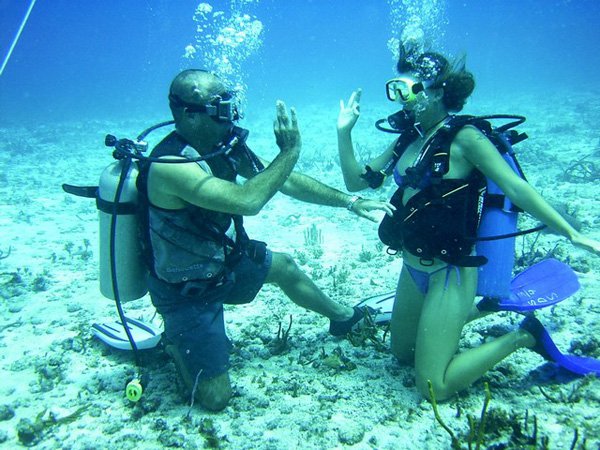
Aqaba in Jordan is a beautiful coastal city that attracts thousands of scuba diving enthusiasts each year with its artificial reef which is home to an array of marine species such as sea horses, turtles and butterfly fish.
But, these spectacular marine creatures are under threat as beach visitors and tourists taking scuba diving holidays ignore the important litter laws.
Abdullah Momani, a 31-year-old former marine biologist and the head of the Aqaba Diving Association, has been involved in several voluntary beach and sea clean-up campaigns and is concerned about the marine environment in Aqaba.
He explained: "Unfortunately, we have a problem with litter particularly after the Eids and holidays. There are soda cans, white plastic cups and plastic bags and at times you can even see diapers under the water. When I lead a group dive and see trash, I change the group's direction to prevent them from seeing it."
He explained that despite the volunteers' best efforts, visitors taking beach and scuba diving holidays are still ignoring litter laws. He added: "When you clean a dive site and return a month later, the rubbish is back. It is killing the corals. Plastic bags cover them and block off sunlight. There are species that grow by one centimetre a year. Turtles have also been decreasing."
According to the Royal Marine Conversation Society of Jordan (JREDS), the Red Sea crystal-clear waters of Aqaba are home to approximately 200 types of hard corals, several coral species and 500 species of fish.
Aqaba's shoreline is only 27 kilometres long but it's one of Jordan's most popular scuba diving destinations.
The Project Manager of JREDS, Faisal Abu Sondos, explained that 80 per cent of the litter in sea originates from the beach.
"Most of the litter is plastic. Sea turtles mistake plastic bags for jellyfish and they choke on them," he said. "Litter is a phenomenon in Aqaba. In one sea clean-up campaign, we have collected two tonnes of litter, which is alarming. In another campaign last year, we have collected 28 tyres from one diving site."
The Aqaba Marine Park is a favourite spot for scuba diving in Jordan and thousands of visitors flock to the area every year to scuba dive down to the cargo ship that was sunk to create an artificial reef and dive through Aqaba's impressive collection 21 diving sites.
The park has several instructions and laws to ensure the protection of marine life including the prohibition of boat anchors and fines for motorists who litter or pollute the ocean, but unfortunately these laws do not include those who litter on the beach.
Hamza Muheisen, the park's public relations director, commented: "People continue to litter. It is against the law. But it is up to the judge to decide the penalty. The problem is that the law is not enforced. We need the help of the environment police. Awareness is not enough. It has to go hand in hand with law enforcement."
The JREDS, the marine park and the Aqaba Diving Association have all been involved in regular monthly clean-ups but they feel more needs to be done to address the situation.
Mr Abo Sondos concluded: "The clean-up campaigns will not necessarily curb the litter. What is needed is an advocacy campaign and to introduce penalties that ban litter. We have asked authorities repeatedly to penalise those who litter. But they have not heeded to our calls. We have been told it is not a priority. The problem is that there is no political will."
5 Best Mountain-Biking Towns (With Roads, Too)



Copyright © www.mycheapnfljerseys.com Outdoor sports All Rights Reserved